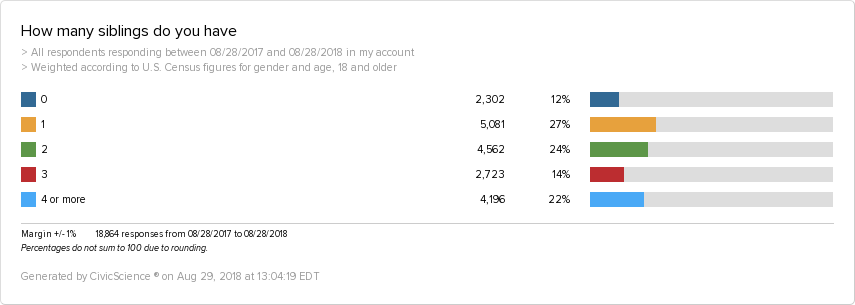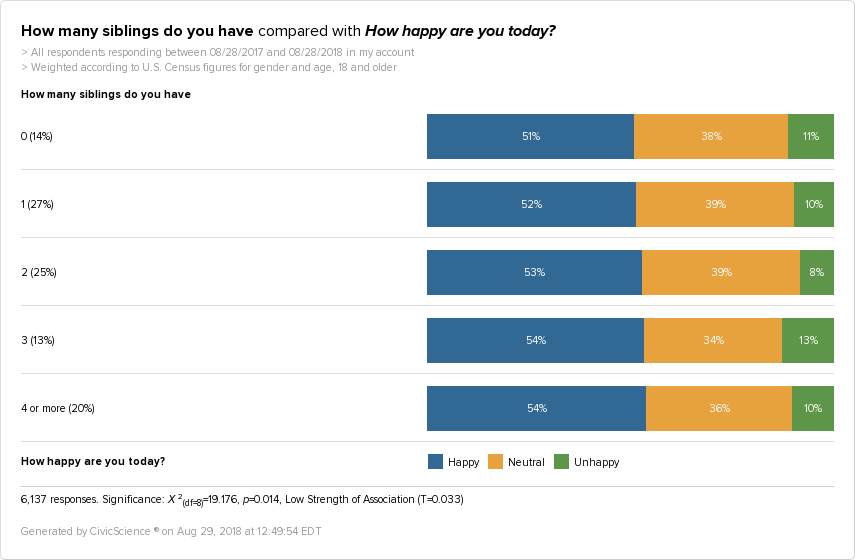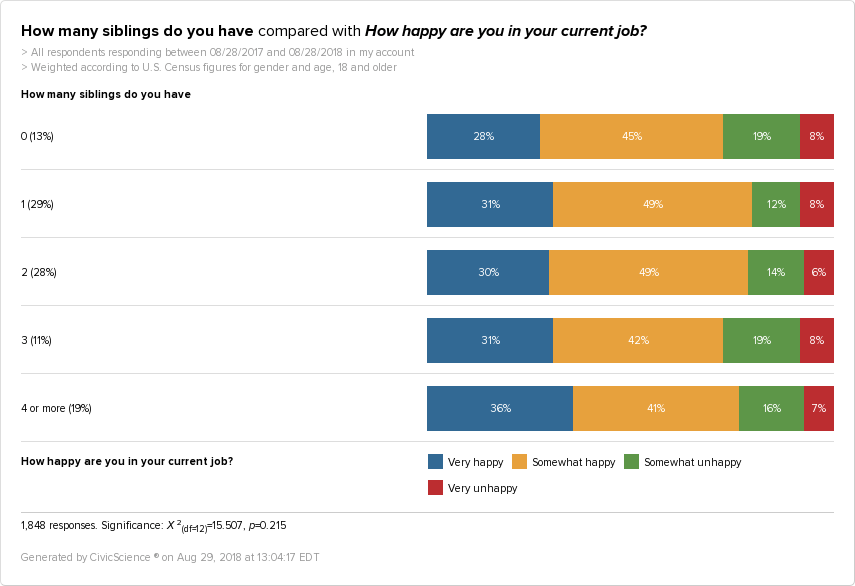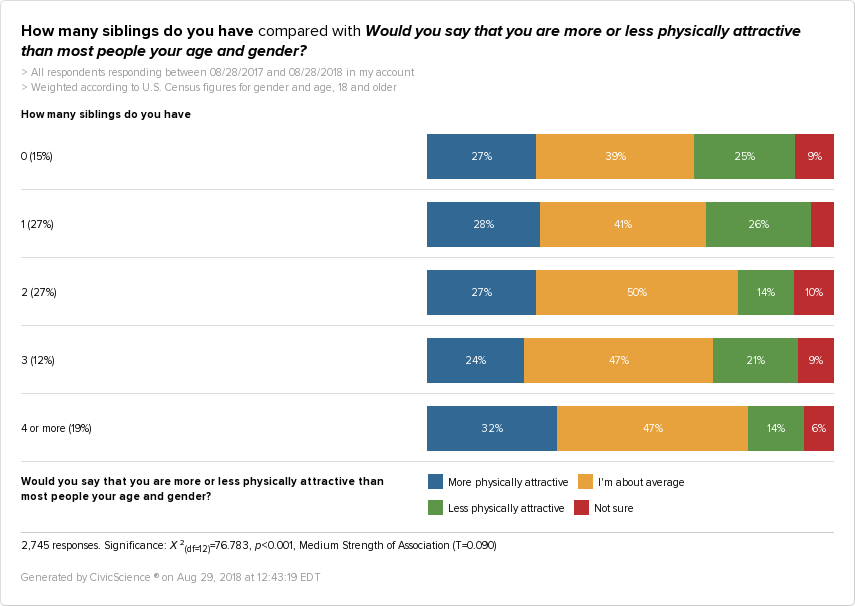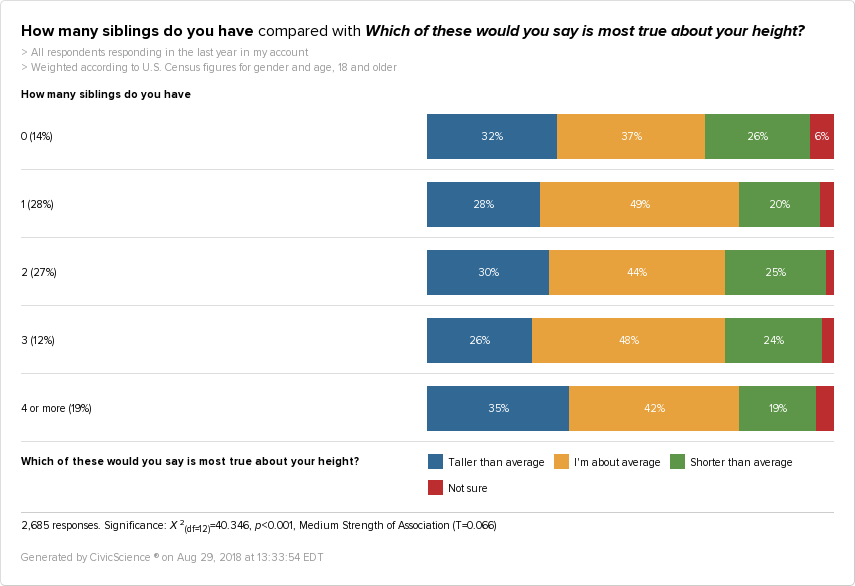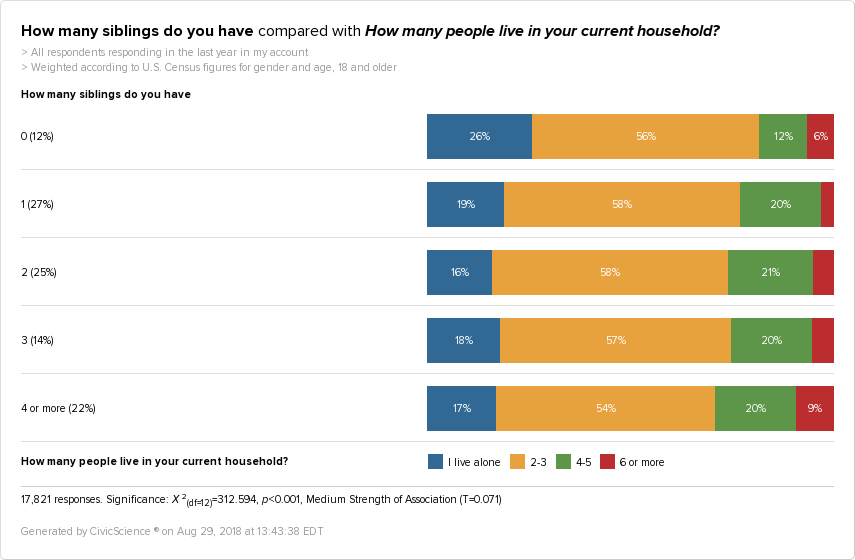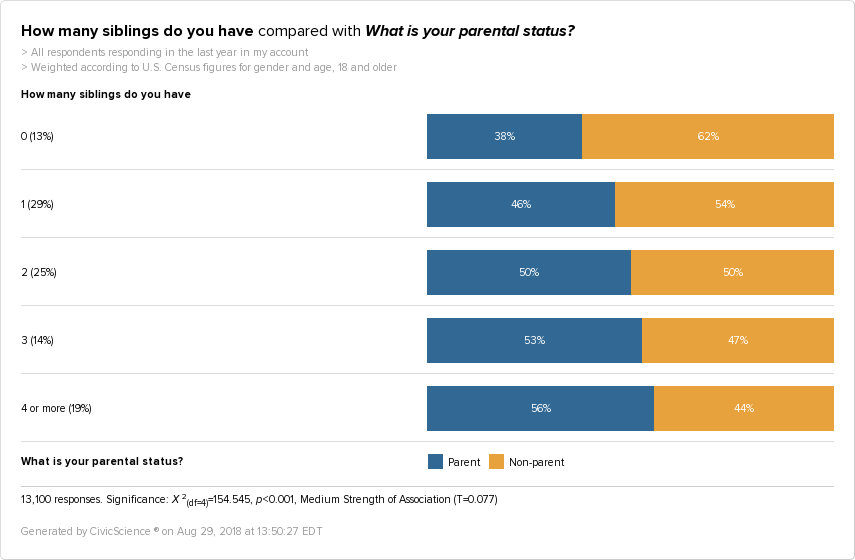You can’t pick your siblings, but can the number of siblings you have pick your fate? CivicScience asked over 18,000 U.S. adults in the past year “How many siblings do you have?”
As it stands alone, the question of how many siblings a person has isn’t novel. The census and birth records provide us with an understanding of the typical family sizes in the U.S. However, census data can’t link the number of siblings a person has to their happiness, income or sense of self-worth.
The More the Merrier
It’s subtle, but it seems the more siblings a person has, the likelier they are to be happy.
Sibling related happiness seems to even out past three siblings, but it’s interesting to note that that the “3” response group also features the largest “Unhappy” response.
Happiness for people with siblings doesn’t stop with the day-to-day. People with more siblings are more likely to report happiness in the workplace.
It’s a difference of 8 percentage points of workplace happiness from only children to people with four or more siblings.
Perhaps it’s true what they say, the more the merrier.
Looks Run in the Family
It’s not only happiness that seems to come with having more siblings, but also a greater sense of self-esteem. People with 4 or more siblings are more likely to consider themselves more physically attractive than average.
People with 4 or more siblings are also least likely to consider themselves “Less physically attractive” than average.
Similarly, people with more siblings are more likely to consider themselves taller than average.
This trend is not as clear as physical attractiveness but indicates that perhaps people with more siblings have more self-esteem on average–especially compared to only children.
Full House
It seems that growing up in a large family leads to more of the same. People with 4 or more siblings are least likely to live alone. Only children experience the inverse.
Along similar lines, the more siblings a person has, the more likely they are to become a parent.
So, while people can’t choose the family they’re born into, the family they create is a reflection of their history and happiness. Judging by the numbers above, it seems people born into large families might have been happy with their upbringing, leading them to create similarly large families–mirroring those they grew up with.
